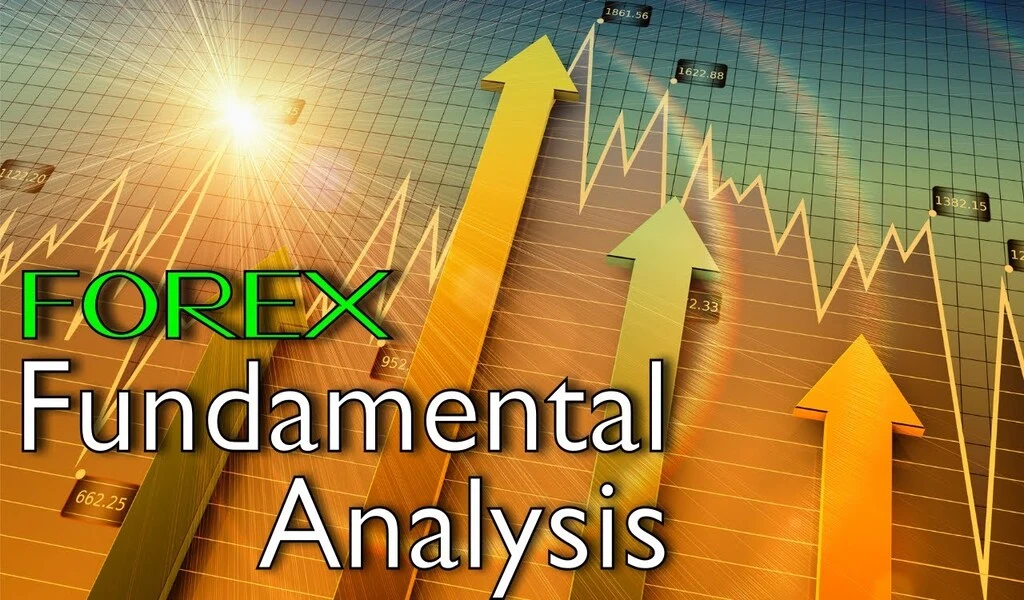Tech
Understanding Forex Fundamental Analysis

(CTN News) – Forex trading involves buying and selling currencies based on their fluctuating values in the global market.
While technical analysis is important in identifying trading opportunities, fundamental analysis is equally important in understanding the broader economic and geopolitical factors that impact currency values.
In this article, we’ll deeply dive into Forex fundamental analysis, exploring what it is, why it matters, and how to use it effectively in your trading strategy.
1. Introduction
Forex fundamental analysis studies economic and geopolitical factors that affect currency values.
It involves analyzing various economic indicators, such as inflation rates, interest rates, and GDP growth, as well as geopolitical factors, such as political stability and natural disasters.
By analyzing these factors, traders can decide when to buy or sell currencies.
2. What is Forex Fundamental Analysis?
Forex fundamental analysis studies the underlying economic and geopolitical factors that impact currency values.
Unlike technical analysis, which focuses on chart patterns and market trends, fundamental analysis looks at the broader picture of the global economy and how it affects currency values.
Fundamental analysis aims to identify long-term trends in currency values based on economic and geopolitical factors.
3. Economic Indicators in Forex Fundamental Analysis
Economic indicators are key metrics that provide insights into the health of a country’s economy. In Forex fundamental analysis, traders analyze a range of economic indicators to determine the strength or weakness of a currency.
Here are some of the most important economic indicators in Forex fundamental analysis:
Gross Domestic Product (GDP)
Gross Domestic Product (GDP) is a measure of a country’s economic output. It represents the total value of goods and services produced within a country over a specific period of time.
Forex traders use GDP as an indicator of a country’s economic health. A high GDP indicates a strong economy, usually associated with a strong currency.
Inflation Rates
Inflation is the rate at which the general level of prices for goods and services is rising.
In Forex fundamental analysis, inflation rates are a key indicator of a country’s economic health. High inflation rates can devalue a currency, while low inflation rates can strengthen a currency.
Interest Rates
Interest rates are the cost of borrowing money. In Forex fundamental analysis, interest rates are a key indicator of a country’s economic health. High-interest rates can strengthen a currency, while low interest rates can weaken a currency.
Trade Balance
The trade balance is the difference between a country’s exports and imports. In Forex fundamental analysis, trade balance is a key indicator of a country’s economic health.
A positive trade balance (i.e., when a country exports more than it imports) is usually associated with a strong currency, while a negative trade balance is associated with a weak currency.
Employment Indicators
Employment indicators, such as the unemployment rate and job creation data, provide insights into the strength of a country’s labor market.
In Forex fundamental analysis, employment indicators are important indicators of a country’s economic health.
A strong labor market is usually associated with a strong economy and a strong currency.
4. Geopolitical Factors in Forex Fundamental Analysis
Geopolitical factors are events or circumstances that occur outside of the economic realm but can still significantly impact currency values.
Here are some of the most important geopolitical factors to consider in Forex’s fundamental analysis:
Political Stability
Political stability refers to certainty and continuity in a country’s political system.
In Forex’s fundamental analysis, political stability is a key factor that affects currency values.
A country with a stable political system is usually associated with a strong currency, while political instability can weaken a currency.
Geopolitical Conflicts
Geopolitical conflicts, such as wars, terrorist attacks, and political crises, can significantly impact currency values.
In Forex fundamental analysis, traders must consider the potential impact of geopolitical conflicts on currency values.
Depending on the nature of the conflict, a currency may either strengthen or weaken.
Natural Disasters
Natural disasters, such as earthquakes, hurricanes, and floods, can also significantly impact currency values.
In Forex fundamental analysis, traders must consider the potential impact of natural disasters on currency values. Depending on the severity of the disaster, a currency may either strengthen or weaken.
5. How to Use Forex Fundamental Analysis in Trading
There are two main ways to use Forex fundamental analysis in trading: long-term and short-term trading.
Long-term Trading Strategies
Long-term trading strategies involve analyzing economic and geopolitical factors to identify long-term trends in currency values.
Traders who use long-term trading strategies may hold positions for several months or even years.
This trading strategy requires a deep understanding of economic and geopolitical factors and the patience to wait for trends to develop.
Short-term Trading Strategies
Short-term trading strategies involve analyzing economic and geopolitical factors to identify short-term trends in currency values. Traders who use short-term trading strategies may hold positions for a few days or even a few hours.
This type of trading strategy requires quick thinking and the ability to make decisions based on rapidly changing market conditions.
6. Common Mistakes to Avoid in Forex Fundamental Analysis
Here are some common mistakes to avoid when using Forex fundamental analysis in your trading strategy:
- Focusing too much on one economic indicator or geopolitical factor
- Not considering the impact of unexpected events, such as natural disasters or geopolitical crises
- Ignoring technical analysis and market trends
- Overanalyzing data and failing to make timely trading decisions
7. Conclusion
Forex fundamental analysis is essential for traders who want to understand the broader economic and geopolitical factors that impact currency values. By analyzing economic indicators and geopolitical factors, traders can make informed decisions about when to buy or sell currencies. While Forex’s fundamental analysis requires a deep understanding of economic and geopolitical factors, it can be a powerful tool for identifying long-term trends in currency values.
Related CTN News:

















![Play Online Blackjack In Australia [2024]: Top 10 Online Australian Blackjack Sites 16 Play Online Blackjack in Australia [2024]: Top 10 Online Australian Blackjack Sites](https://www.chiangraitimes.com/wp-content/uploads/2024/03/word-image-303235-1-80x80.jpeg)












